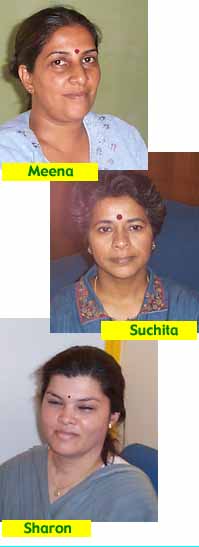Shristi in Bangalore is a part of India's response to the needs of special children.
In a way, nature is even handed: about 3% of all children --across countries, races, religions and cultures-- are 'special'. They arrive on Earth with their unique gifts but mainstream life has little time for them and considers them a problem. While physical debilities become reasonably obvious, identifying those that we have learnt to call 'special', is a task strewn with many barriers. No clinical tests exist to diagnose different mental builds. Over time, these differences need to be 'inferred'. A few among them, like those with Down's syndrome [--or mental retardation] are easier to pick. When it comes to autism however, diagnosis gets complex, because autism spans a wide spectrum: from the barely discernible to the well-defined, with several shades in between. For a long time, these special children in India were denied their special needs because of adult ignorance, social taboos, parental embarrassment and lack of 'specialists'. In the last 3 decades however, India has mobilised itself in its own ponderous, incremental way to address the requirements of these special citizens.
India's response to autism, is a saga of individual endeavour with little support from the state. In terms of care and concern, this peoples' activism has served society's needs, in ways that will rival those of wealthier countries. We survey the scene through the work of a small service in Bangalore called Shristi Special Academy.
Mothers' guts:
Not surprisingly, it is the mother who first senses if her child is unusual. No, she doesn't at once accept the fact and call her child 'special'. That comes later. She first goes through the gamut of self-pity, denial, embarrassment, prayer and despair. And then comes the realisation that she had a problem that won't go away. Action follows.
Most of the action that governs the autism scene in India today, seems to have begun around 30 years ago. In Hubli, Mrs. Vaishali Gore realised in 1975, that her son was mentally retarded. She trained herself to care for him, and began training other parents from 1982. Mrs. Merry Barua in Delhi in 1982, came to serve the cause of parents of special children, because she too had a special child. In Bangalore several parents came together in 1978 to form the Karnataka Parents' Association for mentally retarded Citizens. [KPAMRC].

